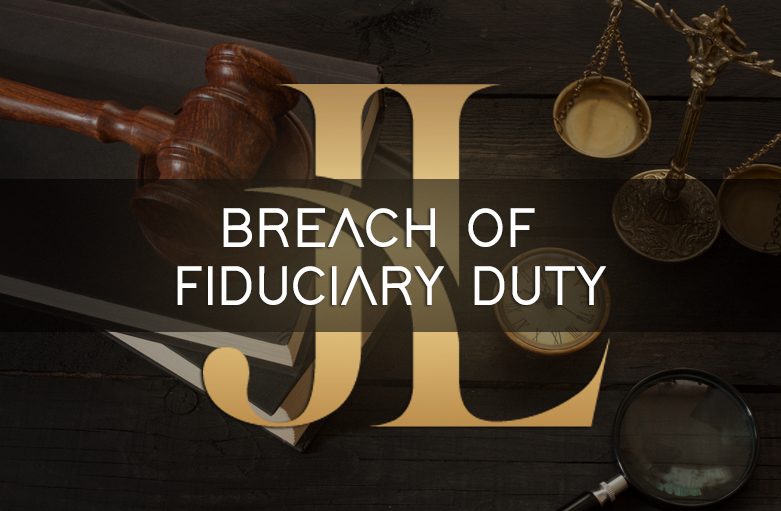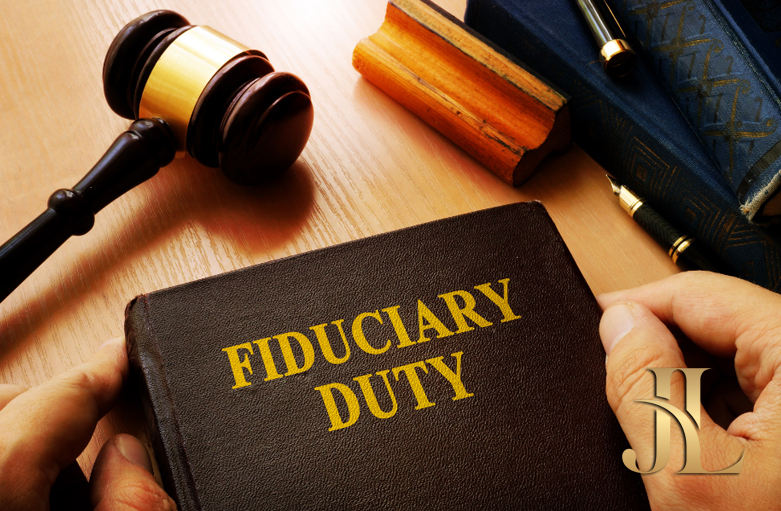
Breach of Fiduciary Duty: Understanding the Consequences and Legal Remedies
When individuals or entities are entrusted with the responsibility to act in the best interests of another party, they are expected to uphold a fiduciary duty. A breach of fiduciary duty occurs when this obligation is violated, resulting in potential harm or loss to the protected party. This article will explore the concept of breach of fiduciary duty, its implications, and the available legal remedies.
Fiduciary duty is a legal obligation that requires individuals or organizations, known as fiduciaries, to act in the best interests of their clients or beneficiaries. The fiduciary is expected to prioritize the other party’s interests above their own and exercise loyalty, honesty, and good faith throughout the relationship.
Understanding Breach of Fiduciary Duty
A breach of fiduciary duty occurs when a fiduciary fails to fulfill their obligations and violates the trust placed in them by the other party. This breach can take various forms, including negligence, conflicts of interest, self-dealing, unauthorized use of funds, and disclosure failures. Establishing that a fiduciary duty exists and demonstrating the breach to pursue legal action is essential.

Types of Fiduciary Relationships
Fiduciary relationships can arise in different contexts, such as:
1. Business Partnerships
Partners owe each other fiduciary duties of loyalty, care, and disclosure in a business partnership. They must act in the partnership’s best interests and avoid engaging in activities that could harm the collective venture.
2. Corporate Directors and Officers
Directors and officers of a corporation have a fiduciary duty to act in the company’s and its shareholders’ best interests. They must exercise due diligence, disclose conflicts of interest, and make decisions that benefit the organization.
3. Trustees and Beneficiaries
Trustees are obligated to manage and administer assets for the benefit of the beneficiaries according to the terms of the trust. They must act impartially, avoid self-dealing, and make informed investment decisions.
4. Attorneys and Clients
Attorneys are bound by a fiduciary duty to provide competent and zealous representation while safeguarding the best interests of their clients. They must maintain confidentiality, avoid conflicts of interest, and act ethically.
Common Examples of Breach of Fiduciary Duty
Breach of fiduciary duty can manifest in various ways, including:
- Misusing client funds for personal gain
- Failing to disclose conflicts of interest
- Withholding crucial information from beneficiaries
- Failing to exercise due diligence in decision-making
- Engaging in self-dealing transactions without authorization
- Providing negligent or incompetent advice or services
Consequences of Breach of Fiduciary Duty
The consequences of breaching fiduciary duty can be significant and may vary depending on the jurisdiction and the case’s specific circumstances. Some potential consequences include:
- Legal liability and financial damages
- Disqualification from serving as a fiduciary in the future
- Loss of professional reputation
- Criminal charges in cases involving fraud or embezzlement
- Legal Remedies for Breach of Fiduciary Duty
When a breach of fiduciary duty occurs, the aggrieved party may seek legal remedies to address the harm suffered. The available remedies can include the following:
- Monetary damages to compensate for losses incurred
- Injunctions or court orders to prevent further harm
- Removal of the fiduciary from their position
- Rescission or cancellation of contracts affected by the breach
- Surcharge or disgorgement of profits obtained through the breach
- Proving a breach of fiduciary duty
To establish a breach of fiduciary duty, certain elements must be demonstrated, including:
- The existence of a fiduciary duty relationship
- A breach of that duty by the fiduciary
- Causation, indicating that the breach caused harm or losses
- Damages suffered as a result of the breach
Proving these elements typically requires gathering evidence, such as documents, financial records, witness testimony, and expert opinions.
Prevention and Mitigation of Breach of Fiduciary Duty
To prevent and mitigate breaches of fiduciary duty, both fiduciaries and beneficiaries should take proactive measures. These can include:
- Clear and comprehensive written agreements outlining the fiduciary relationship
- Regular communication and transparency between the parties
- Periodic reviews and audits of financial records
- Educating fiduciaries about their duties and responsibilities
- Promptly addressing any concerns or suspicions of misconduct
Case Studies: Notable Breach of Fiduciary Duty Cases
Enron Corporation: The collapse of Enron in 2001 involved various breaches of fiduciary duty by executives, including fraudulently concealing the company’s financial status and manipulating financial statements.
Lehman Brothers: The bankruptcy of Lehman Brothers 2008 revealed breaches of fiduciary duty by the company’s management, contributing to the global financial crisis.
Madoff Investment Scandal: Bernie Madoff’s Ponzi scheme exposed a breach of fiduciary duty, as he misappropriated clients’ funds and falsified investment returns.
Hiring Legal Representation for Breach of Fiduciary Duty
If you believe you have been a victim of a breach of fiduciary duty, it is advisable to consult an experienced attorney specializing in fiduciary law. They can assess your case, guide you through the legal process, and advocate for your rights and interests.
Conclusion
Breach of fiduciary duty is a serious matter that can result in significant harm and financial loss. Understanding the nature of fiduciary duty, potential breaches, and the available legal remedies is crucial for fiduciaries and beneficiaries. By upholding fiduciary obligations and promptly addressing any breaches, we can foster trust and maintain the integrity of these important relationships.
FAQs (Frequently Asked Questions)
In certain cases involving fraud or embezzlement, a breach of fiduciary duty can lead to criminal charges and potential imprisonment.
Yes, statutes of limitations determine the timeframe within which a breach of fiduciary duty claim must be filed. These time limits vary by jurisdiction and the nature of the claim.
Yes, a fiduciary can be held liable for the actions of their employees if those actions were within the scope of their employment and resulted in a breach of fiduciary duty.
Yes, a breach of fiduciary duty can occur in personal relationships where one party has a legal or moral obligation to act in the other party’s best interests, such as in cases of guardianship or power of attorney.
If you suspect a fiduciary duty breach, gather relevant evidence and consult with a knowledgeable attorney who can assess your situation and advise you on the appropriate course of action.
Contact us to speak with one of our knowledgeable attorneys and gain a competitive advantage in resolving breach of fiduciary duty.
